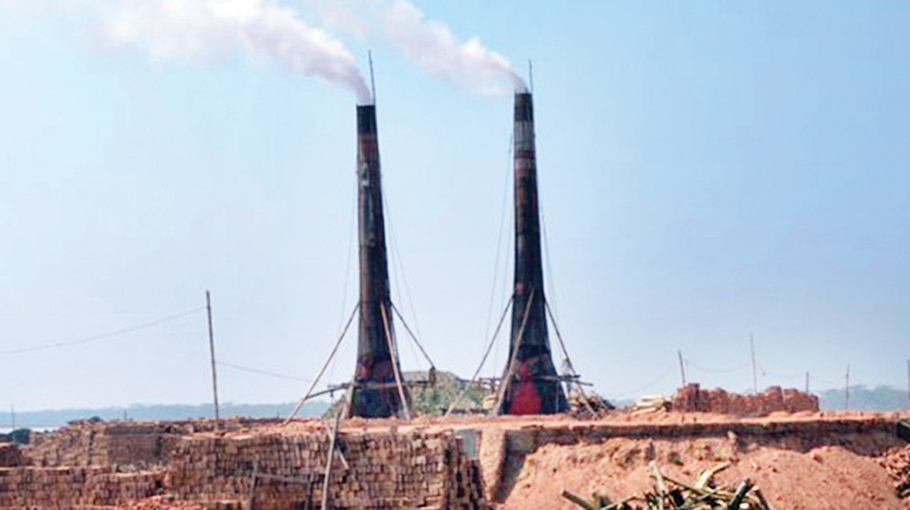Govt’s 100-day action plan
Govt’s 100-day action plan 70pc brick kilns around Dhaka demolished

Almost 70 percent illegal brick kilns around the capital city were demolished as part of the government’s 100-day work plan aiming to build a ‘healthy environment, smart Bangladesh’.
The initiative was taken by the Environment, Forest and Climate Change Ministry to solve air pollution, noise pollution, water pollution, plastic-polythene pollution and hill cutting by taking suggestions from the stakeholders.
As part of this action plan, it was decided to demolish 500 illegal brick kilns around Dhaka city. The 100th day which is scheduled to end on the first week of May, has witnessed a rapid move as the Department of Environment has already destroyed almost 70 percent of the total brick kiln within a month.
Cabinet Secretary Md. Mahbub Hossain has instructed all departmental commissioners to take measures to stop all illegal brick kilns in the country. He gave this instruction in the monthly regular meeting held with all departmental commissioners in the conference room of the cabinet department on February 22.
Secretary of the Ministry of Environment, Forests and Climate Change Dr Farhina Ahmed presented the topic of illegal brick kilns during the meeting while she also gave some
instructions to the district commissioners about illegal brick kilns.
However, in an inter-ministerial meeting on Tuesday where secretary Dr Farhina Ahmed sought coordinated efforts of the ministries for the implementation of the Mujib Climate Prosperity Plan which is a 100-day program.
According to the Ministry of Environment, Forest and Climate Change, the government will use the Brick Kiln Tracker to help identify environmental polluters and illegal brick kilns and take appropriate legal action. Brick kiln
Tracker based on IT and Remote Sensing technology has been developed in a joint venture between the Department of Environment and the National University of Singapore.
The monitoring and enforcement activities of the Department of Environment will be strengthened and successful with the help of this tracker with the latest technology including artificial intelligence. The use of Brick Kiln Tracker will make it easier to stop illegal activities by identifying highly harmful brick kilns on a priority basis. It will also reduce air pollution caused by brick kilns.
The environmental impact is immense. The loss of around 7.5 lakh acres of agricultural land every year, which is equal to roughly 12.5 crore tonnes, poses a significant challenge that cannot be overlooked. The extensive size of these activities, including large kilns requiring 40 to 45 acres each, worsens the decline of arable land, leading to grave worries regarding food security in the future.
In this regard, Environment, Forests and Climate Change Saber Hossain on Saturday said that the government will introduce incentive packages to promote the production of environmentally friendly block bricks. Brick kiln owners can benefit from these incentives as part of the government's efforts to transition away from air-polluting and land-damaging brick kilns.
He also mentioned that 13 crore tonnes of soil are utilized annually for brick burning in the conventional method. One of the benefits of using block bricks is that it does not require agricultural soil. Block bricks consist of sand and fly ash, while the soil essential for farming is depleting. Unlike traditional bricks, block bricks do not contribute to pollution as they are not subjected to burning.



